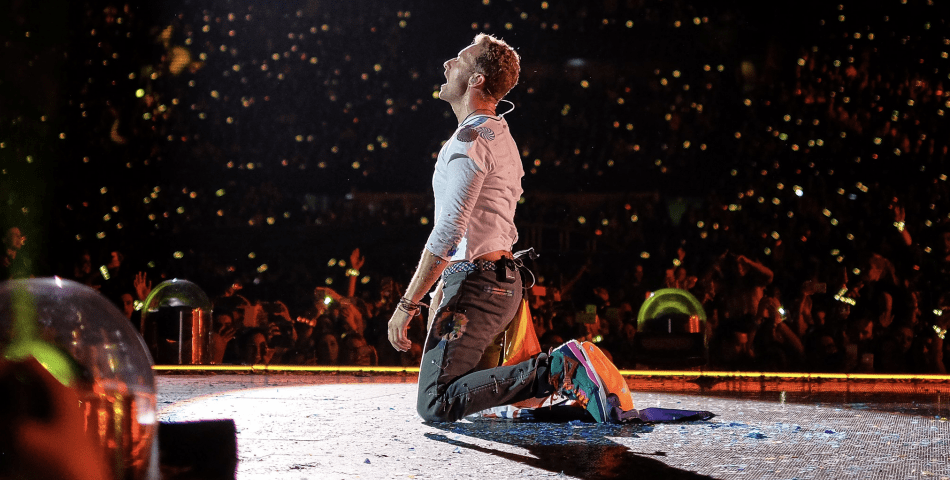Last week, Coldplay announced plans to refrain from touring their latest album ‘Everyday lives’ (released November 22nd) as they were working on a method of running an entirely ‘sustainable tour’. Charlotte Smith asks whether this move is one to inspire controversy or intends to create a climate conscience within the music industry
The ‘Climate Crisis’ has been dominating the media for months now, something which has only been heightened following the announcement of the December 12th election: for many heightening the desperation. Vast numbers of people believe this election is likely the last feasible chance to force recognition, action and ultimately change in regards to the climate disaster and to ensure it is not pushed to the bottom of every parties manifesto and thus, ignored.
Coldplay have never been the band to shy away from taking a political stance, with songs like ‘Violet Hill’ preaching an anti-war message surrounded by popular culture. Their powerful lyrics in ‘Politik’ warning of ignorance; strong motifs of aiding the less fortunate in videos for songs such as ‘Orphans’ and messages about empires in popular hits such as ‘Viva la Vida’. However, Coldplay’s latest political standing is the most radical to date and – for many – their most controversial.
More specifically, Chris Martin – lead singer – not only wants to find an eco-friendly alternative to traditional tour set-ups, but he wants it to be ‘environmentally beneficial’. What is meant by the ‘beneficial’ is more political than practical. Being one of the largest and most successful bands the last decade has seen, the decision not to tour their latest album would undeniably have upset many fans. Although unlikely that this was the intention, this would have (perhaps unintentionally) sparked an environmental interest and action from many young people.
Something which has frustrated many environmentalists for years, has been the ignorance or lack of action of the population. It is almost impossible in todays society to live your life without being aware of the Climate Crisis spiralling around us and expanding daily. However, unlike poverty, homelessness, NHS struggles or, more currently, Brexit, it is a far less visible issue for those living in Urban areas or even in most first or second world countries. Therefore, for a lot of people, acting upon the Climate Crisis through cutting down on plastic, meat or travel is an inconvenience to them and not something they prioritise as the effects of their singular participation are largely invisible. Could Coldplay’s decision spark a widespread interest in this? An interest which people of all ages share, is that of music. Therefore, by restricting access to see your favourite band live, Coldplay have made the impacts of Climate change visible to those fortunate enough to live away from the more devastating impacts, encouraging people to recognise it and to help correct it, in order to continue with live performances.

However, creating an entirely sustainable world tour is an incredibly hard feat to achieve. Firstly there is the transport, not only of people, but of equipment weighing hundreds of tonnes, overseas. Secondly there is the effects and staging, something which Coldplay themselves are renowned for – vibrant lights, confetti and smoke shows. The list goes on, however something which perhaps the band haven’t accounted for is the transport of those attending the show. Thousands of people attend each gig, therefore thousands of miles of transport and carbon emissions result, something which would be almost impossible to counteract or to correct. Therefore, if the band intend to wait until it is possible to host an entirely sustainable concert, could this mark the end of Coldplay’s live performances for years to come, possibly the next three or even 4 albums passing without a tour. For live music, this is arguably a large step back to before musicians were able to travel large distances.
Despite this, Coldplay have taken actions to not only make sure that fans don’t miss out entirely, but also encourage people to get involved. As compensation for the lack of a tour, the band decided to hold one single live performance in Jordan, somewhere which not only is largely central geographically, but also has seen the effects of the climate crisis, yet is often overlooked for live music performances. This performance was broadcast worldwide and took place at Sunrise and Sunset, cleverly mirroring the dual parts which makeup the album. Although this meant travel (and therefore emissions) the performance was significantly less extravagant than other performances and all of the proceeds from the tickets and advertising revenue will be donated to environmental charities. The nature of the location also meant that there was less travel from people attending, and the innovative nature of a live broadcast of a concert meant no-one was excluded from the experience.
The ingenuity of the live event and the thought invested in the location and setting is promising that Coldplay have the creative capacity to be the first band to make a move towards sustainability, regardless of the fact it will be incredibly hard to stick entirely to their promise.
Charlotte Smith
Header image : Seat Geek

